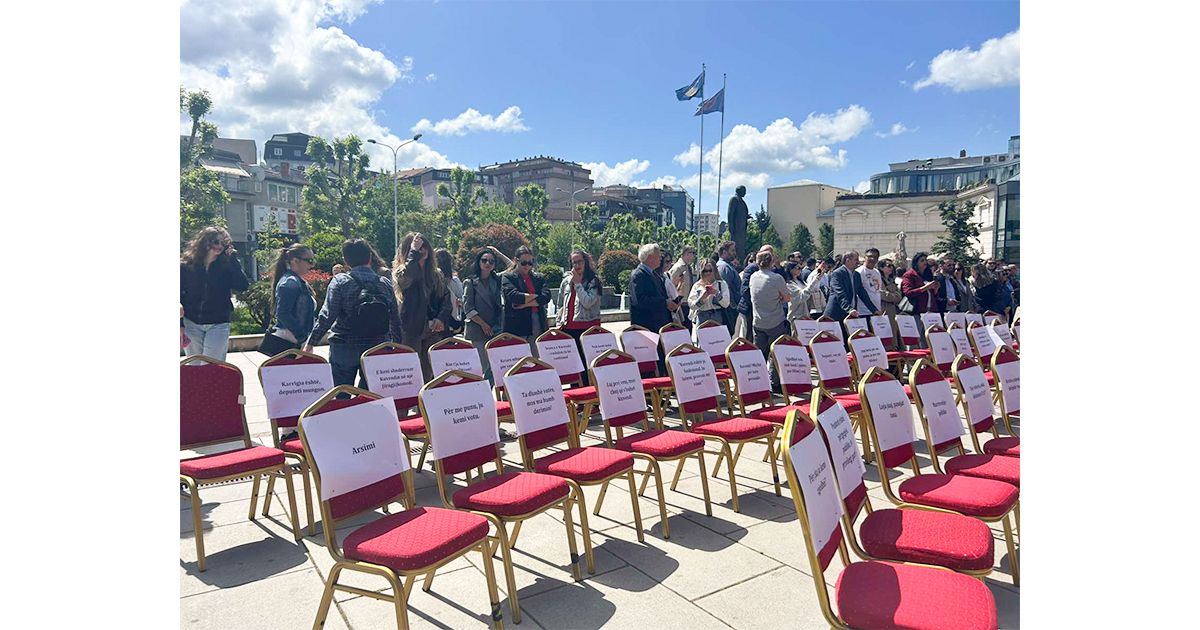Last week KWN welcomed five students from the Danish Institute for Study Abroad’s Justice and Human Rights program. Mimoza Pachuku, the Manager of Kosova Women’s Fund at Kosova Women’s Network (KWN), explained the roots of KWN, its history and activism throughout the years.
Since the student’s field of study is Humanitarian Law and Armed Conflict they were interested to know about KWN’s engagement in gender based violence. As this is one of the main pillars of KWN’s strategy 2015-2018, they were informed about the nation-wide research KWN is conducting on gender based violence and sexual harassment; the creation of the National Council for the Survivors of Wartime Sexual Violence, the #TakeBackTheNight initiative of FemAct; and the initiatives of KWN members on local level regarding gender based violence.
Several students, after they got informed regarding KWN’s work and activities expressed their interest to intern for KWN.


